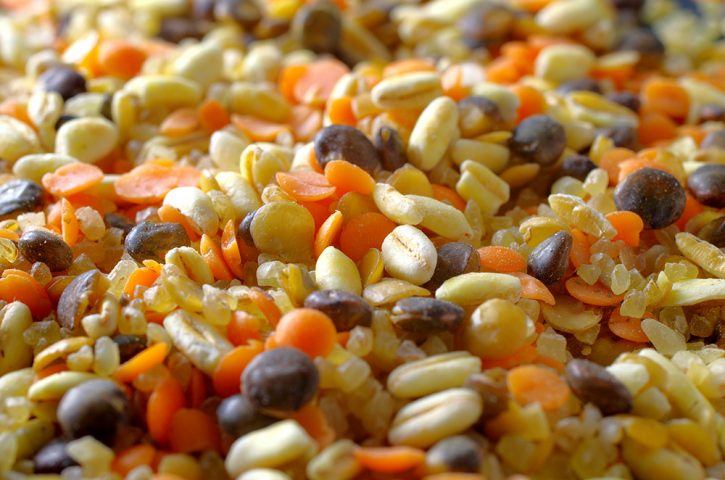The Benefits of Whole Grains for Dementia Patients

The Best Fruits for a Dementia-Friendly Diet
March 26, 2025
March 2025 Newsletter
April 3, 2025The Benefits of Whole Grains for Dementia Patients

Introduction
Dementia is a progressive neurological disorder that affects memory, cognitive function, and the ability to perform daily activities. Nutrition plays a crucial role in managing dementia, and whole grains are among the best dietary choices for brain health. Rich in fibre, vitamins, and essential nutrients, whole grains support cognitive function, improve heart health, and reduce inflammation, which are all key factors in dementia care.
Understanding Whole Grains
Whole grains are unrefined grains that contain all three parts of the grain kernel: the bran, germ, and endosperm. Unlike refined grains, which lose essential nutrients during processing, whole grains retain their full nutritional profile, making them a superior choice for overall health.
Some common whole grains include:
- Brown rice
- Whole wheat
- Oats
- Barley
- Quinoa
- Millet
- Buckwheat
- Rye
How Whole Grains Benefit Dementia Patients
- Improving Cognitive Function
Whole grains are rich in B vitamins, particularly B6, B12, and folate, which are essential for brain health. These vitamins help reduce homocysteine levels, a compound linked to cognitive decline and Alzheimer’s disease. Studies suggest that whole grain consumption is associated with better cognitive performance and a lower risk of neurodegenerative diseases.
- Regulating Blood Sugar Levels
High blood sugar levels can contribute to cognitive decline and increase the risk of developing dementia. Whole grains have a low glycaemic index, which means they help regulate blood sugar levels and prevent spikes. This is particularly beneficial for individuals with diabetes, a major risk factor for dementia.
- Reducing Inflammation
Chronic inflammation in the brain is a key contributor to dementia. Whole grains contain antioxidants and polyphenols that help combat inflammation. The fibre in whole grains also promotes gut health, which is increasingly being linked to brain function through the gut-brain axis.
- Supporting Heart Health
Cardiovascular health is closely linked to brain health. High blood pressure, high cholesterol, and poor circulation can increase the risk of dementia. Whole grains support heart health by reducing cholesterol levels, improving blood flow, and maintaining healthy blood pressure, all of which contribute to better brain function.
- Enhancing Gut Microbiota
The gut microbiome plays a significant role in brain health. Whole grains are rich in prebiotic fibre, which nourishes beneficial gut bacteria. A healthy gut microbiota has been associated with improved mood, better cognitive function, and a reduced risk of neurodegenerative diseases.
Best Whole Grains for Dementia Patients
While all whole grains offer benefits, some are particularly beneficial for brain health:
- Oats
Oats are rich in beta-glucan, a type of soluble fibre that helps regulate blood sugar and cholesterol levels. They also contain antioxidants that reduce inflammation and oxidative stress in the brain.
- Quinoa
Quinoa is a complete protein, meaning it contains all nine essential amino acids necessary for brain function. It is also high in magnesium, which supports nerve function and reduces the risk of cognitive decline.
- Brown Rice
Brown rice is a good source of manganese and selenium, both of which help protect brain cells from damage. Its high fibre content also aids digestion and overall health.
- Barley
Barley is packed with fibre and antioxidants that support heart and brain health. It helps lower cholesterol levels and regulate blood sugar, both of which are crucial for dementia management.
- Whole Wheat
Whole wheat is rich in vitamin E, a potent antioxidant that protects the brain from oxidative stress and supports cognitive function. It is also an excellent source of dietary fibre, which promotes gut health.
- Millet
Millet is high in iron and B vitamins, which enhance cognitive function and prevent memory loss. It is also gluten-free, making it a great choice for those with gluten sensitivities.
- Buckwheat
Buckwheat is a nutrient-dense grain rich in flavonoids, antioxidants, and magnesium, all of which support brain health and reduce the risk of neurodegenerative diseases.
How to Incorporate Whole Grains into a Dementia-Friendly Diet
To maximize the benefits of whole grains, they should be included in daily meals in various forms. Here are some simple ways to incorporate them into a dementia-friendly diet:
- Breakfast Options: Start the day with oatmeal, whole grain toast, or a quinoa breakfast bowl.
- Lunch Ideas: Use whole grain bread for sandwiches, add barley or brown rice to soups, or prepare a quinoa salad.
- Dinner Choices: Serve whole grain pasta, brown rice, or millet as side dishes.
- Snacks: Enjoy whole grain crackers, air-popped popcorn, or whole wheat muffins.
- Baking Alternatives: Replace refined flour with whole wheat flour or oat flour in baked goods.
Tips for Making Whole Grains More Palatable for Dementia Patients
Some dementia patients may have difficulty chewing or swallowing whole grains. Here are some tips to make them easier to consume:
- Cook grains thoroughly to make them softer and easier to digest.
- Blend grains into soups or smoothies for a smoother texture.
- Mix grains with familiar foods to make them more appealing.
- Use whole grain flours in baking to create soft-textured foods.
- Soak grains overnight to improve digestibility.
Conclusion
Whole grains play a crucial role in promoting brain health and managing dementia symptoms. Their high fibre content, essential nutrients, and ability to regulate blood sugar, reduce inflammation, and support heart health make them an excellent dietary choice for dementia patients. By incorporating whole grains into daily meals in a dementia-friendly manner, caregivers can enhance cognitive function and overall well-being in individuals affected by the condition.



